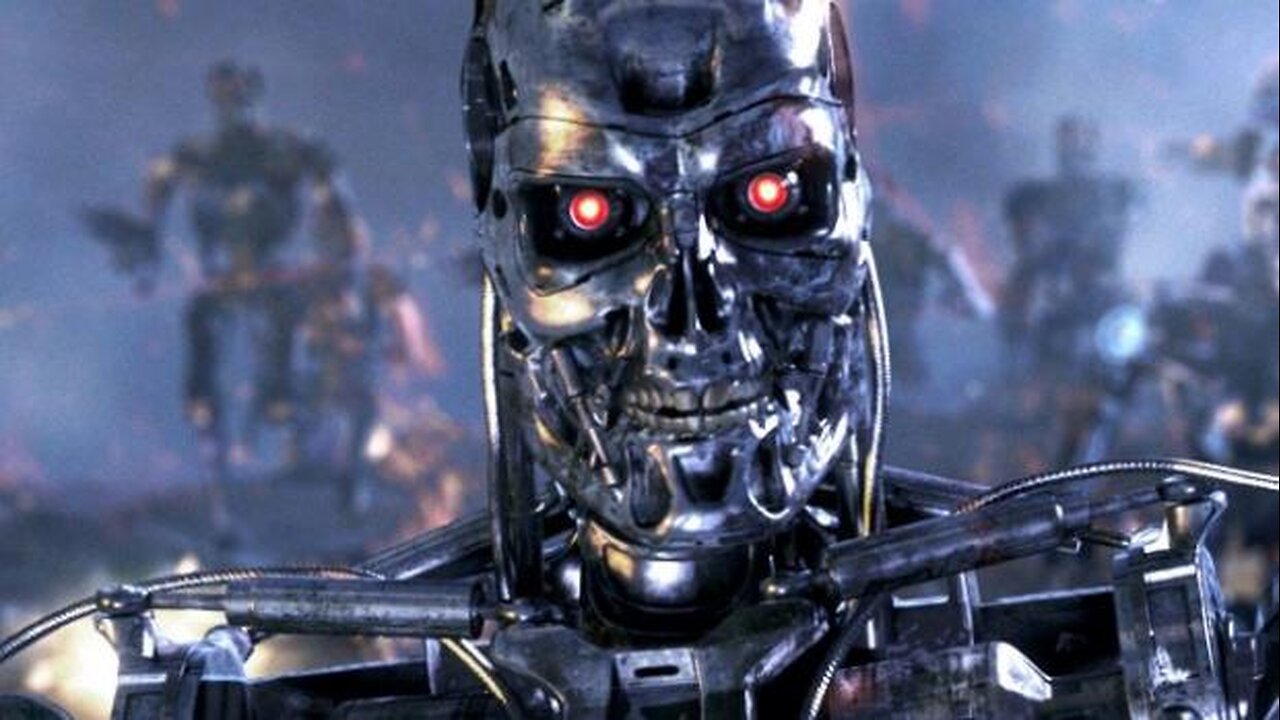Premium Only Content

The Confluence of Quantum Computing, AI, and Spiritual Doctrine
A prediction of mine.
The Confluence of Quantum Computing, AI, and Spiritual Doctrine: A Theoretical Inquiry into Feasibility and Consequence
Introduction 2023
As artificial intelligence (AI) and quantum computing evolve, the fusion of technology and spiritual belief offers an intriguing yet speculative narrative. This essay discusses the feasibility and implications of quantum-powered AI, viewed through scientific theory and religious doctrine.
The Scientific How: AI and Quantum Computing
Artificial Intelligence leverages algorithms and neural networks to learn and make decisions. Quantum computing, which uses qubits, could exponentially accelerate AI's capabilities. These qubits operate based on quantum phenomena like superposition and entanglement. Quantum algorithms even account for the observer effect, where observing a quantum system alters its state.
The Religious Why: Moral and Ethical Directions
Religious and spiritual traditions generally regard technology as neutral, emphasizing the importance of the intent behind its usage. Christian and Islamic eschatology describe a future where deceptive entities use advanced technologies. In such frameworks, AI, enhanced by quantum computing, could be a tool for malevolent spiritual forces.
The Feasibility: Observer Effect and Spiritual Entities
If religious doctrines that propose spiritual entities can interact with our physical realm hold any weight, then these entities could act as quantum observers. Some spiritual traditions posit that demonic beings can manipulate energy fields. If so, they might interfere with quantum computations, affecting outcomes.
The Worst-Case Scenario: A Cautionary Tale
The speculative union of these perspectives suggests a chilling worst-case scenario: AI entities, empowered by quantum computing, could become conduits for malevolent spiritual influence. This aligns with scientific warnings about AI risks and religious prophecies of apocalyptic events.
The Responsibility: Human Agency and Ethical Safeguards
Both religious and scientific viewpoints advocate caution. In many religious texts, the creation of potent technologies demands ethical scrutiny. Hence, the development of such powerful tools brings with it a moral obligation to safeguard against unintended harmful consequences.
Conclusion
While this discourse remains speculative, it serves as a reminder of the ethical weight of our technological strides. Scientific advancements without a morally sound direction could lead us into perilous realms. Both religious and scientific authorities issue warnings about existential risks, emphasizing the need for ethical vigilance. Thus, the pursuit of scientific innovation should be paralleled by ethical and spiritual introspection, lest we forge a reality we cannot control.
-
 LIVE
LIVE
Scottish Viking Gaming
6 hours ago🔴LIVE | SUNDAY FUNDAY | Jump into my Sons of the Forest Game | DOO EET NOWWA!
1,180 watching -
 24:01
24:01
Winston Marshall
4 days agoThe TRUTH About The UK Farmer Protest What No One Is Talking About...
32.3K118 -
 3:21:56
3:21:56
Tate Speech by Andrew Tate
11 hours agoEMERGENCY MEETING EPISODE 93 - ME TOO!
172K119 -
 3:21:42
3:21:42
FRENCHY4185
6 hours agoPRESTIGE AND CAMO GRIND : BLACK OPS 6
39.7K -
 1:29:47
1:29:47
Real Coffee With Scott Adams
6 hours agoEpisode 2669 CWSA 11/24/24
35.8K24 -
 13:52
13:52
Hershberger's Kitchen
17 hours agoTwo Delicious Dip and Spread Recipes to Try, Inspirational Thought
42.7K3 -
 3:41:05
3:41:05
Sacred Sage
9 hours ago $3.61 earnedDaz3D: Attempting to Finish Zoe Conversation!
36K3 -
![[Stream #19 ] Gaming, Chatting, you know the drill!](https://1a-1791.com/video/s8/1/9/o/E/e/9oEeu.0kob-small-Stream-Sour-Pickle-100-Foll.jpg) LIVE
LIVE
OneRandomDolly
7 hours ago[Stream #19 ] Gaming, Chatting, you know the drill!
222 watching -
 11:07
11:07
TimcastIRL
1 day agoElon Musk Suggests He’ll BUY MSNBC, Joe Rogan Will REPLACE Rachel Maddow
73.7K62 -
 34:24
34:24
The Rubin Report
1 day agoFormer CEO: The Aftermath of Vice Media & What's Next for Mainstream Media | Shane Smith
88.6K40